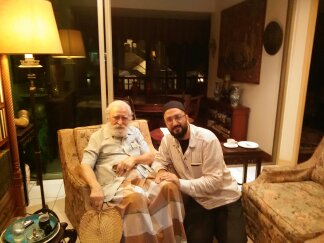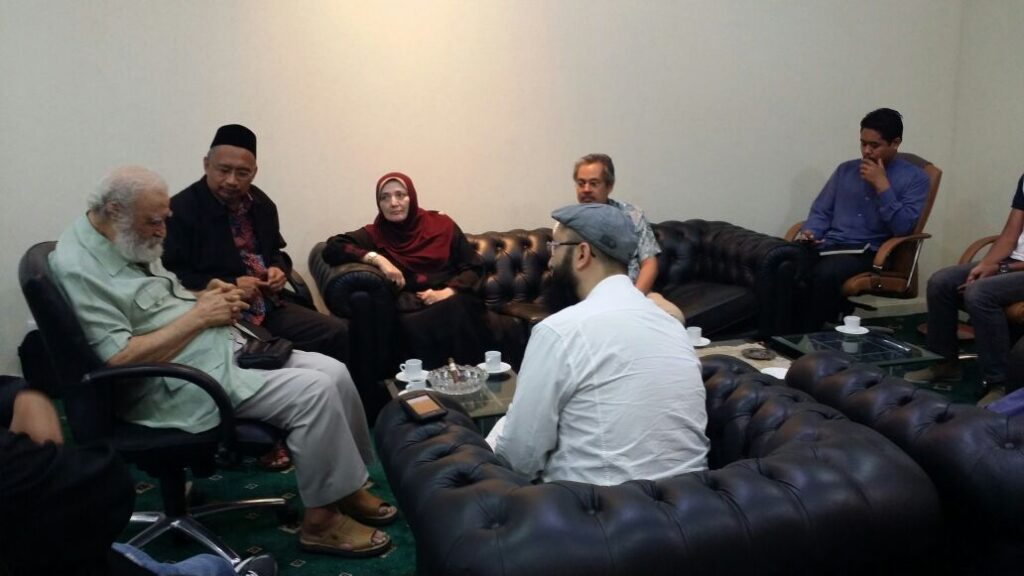by Dr. Selami Erdoğan,
Head of Department of Sufism, and Dept of Arabic Language and Literature,
Dulumpinar University, Kutahya, Turkey.
بسم الله الرحمان الرحيم

During my readings for my post-doctoral research on “Islamic Thought After Modernization in Terms of Problems and Solutions” in 2013, I could not find what I was looking for. Although I learned in this process various issues about the problem or solution, I could not find the precise determination that expresses the philosophical aspect underlying the problem of modernization. It was clear to my knowledge that the meaning and terminology of sciences in Islamic Tradition tremendously changed after modernization, but for some reasons, the philosophical definition and problem underlying these changes was not clear to me. My aim was to determine the framework of the solution proposal that can be constituted with respect to aforementioned philosophical definition and to offer my own contribution to understand and address this problem. Ismail Faruqi’s thought on “Islamization of knowledge” was partly drawing this philosophical aspect however, the place of sufism as a science in the Islamic thought was missing both in his problem and remedy conception. What I mean with sufism as a science is the epistemological and ontological contributions of Sufis to various subjects of Islamic sciences. Although many of these contributions are proved by the ways of Islamic logic, and some of them by observational and experimental knowledge, many academicians lack in evaluating these scientific values.

Until I came across Prof. Dr. Wan Mohd Nor’s article in the proceedings book of the International Modernization Symposium which was held in Istanbul back in 2002. Prof. Wan Daud’s article was about Syed Muhammad Naquib al-Attas’s thought on the challenges of Islamic thought facing modernization with respect to concepts such as Islamization, Westernization and secularization, comparing between Islamic and Western worldviews. This article astonishingly captured my imagination in the course of my long process of my research in which I would later find out that the “Islamization of knowledge” was first conceptualised by Prof. al-Attas. I have to admit that while I was trying to reach Prof. al-Attas’s works in Turkey, I was directed to Prof. Wan Daud’s articles online. Prof. Wan Daud’s article on “An Outline of the Educational Philosophy and Methodology of al-Attas” was another article which was impactful to me. Since only two works of Prof. al-Attas had been translated into Turkish, I was keen to understand further his thoughts. I searched and looked for him through the internet and it directed me to the International Institute of Islamic Thought and Civilization (ISTAC). However, unfortunately, I learnt that Prof. al-Attas is no longer with ISTAC. With God’s grace, and after insistent communication with the officer at ISTAC, one of them shared Prof. Wan Daud’s e-mail with me. I was able to reach him and conveyed my intent of purpose to study Prof. al-Attas’s thoughts. Prof. Wan Daud was very helpful and welcoming me to come to KL, especially CASIS where he was the Founder and Director then. The rest of it is history. From that onwards my research program at CASIS started from September 2014 until May 2015.

Prof. Wan Daud was very kind in assisting me with all the facilities I needed for my research at CASIS. I also received warm welcome and support by CASIS staff, administrators as well as the students during my attachment at CASIS under the University of Technology Malaysia (UTM). The support I received on issues such as working office hours and library membership within the campus continued even though I was outside of the campus. In this regard I had also good memories with Prof. Dr. Muhammad Zainiy Uthman, Professor Dr. Tatiana Denisova, Assoc. Prof. Dr. Khalif Muammar A. Harris, Assoc. Prof. Dr. Wan Suhaimi Wan Abdullah, Dr. Suleiman Mohammed Hussein Boayo, the staff and the students of CASIS.

I was very fortunate and blessed because Prof. Wan Daud had arranged a special lunch at CASIS with the presence of Prof. al-Attas. In that lunch was where I first met with al-Attas, the encounter was like the embodiment of the adab understanding that he defined through the meaning of banquet. The smell of coffee and puro smoke in the conversation we had after dinner remained in my memory like a symbol of harmony and depth in al-Attas’ thoughts. Based on my short attachment with CASIS, but a very meaningful one, I was able to share my outcomes and experience in my writings such as: Sufism in the Context of Modernism: Adab Approach of Naquib al-Attas and in a Turkish article on Syed Muhhammad Naquib al-Attas’s Understanding of Sufism.
In this special occasion of the commemoration of 10th years of RZS-CASIS, I would like to congratulate RZS-CASIS and express my special thanks to Prof. al-Attas, Prof. Wan Daud, his family, all lectures, all CASIS admins, and students.
CURRICULUM VITAE
Selami Erdoğan was born in 1977 in Kırıkkale. In 2000, he graduated from Cukurova University, Faculty of Economics and Business Administration and in 2002 from Anadolu University, received his associate degree program of Theology. In 2007, he obtained a master degree in Sufism and Ph.D in 2013 respectively from Ankara University, Institute of Social Sciences. In 2014-2015, he spent his post-doctorate study at the Raja Zarith Sofiah Centre for Advanced Studies on Islam, Science, and Civilization (RZS-CASIS), (then known as CASIS), Universiti Teknologi Malaysia (UTM) to study Syed Muhammad Naquib al-Attas’s thoughts and contributions in adab and tasawwuf. Currently he is working as an instructor at Dumlupınar University, Faculty of Theology, Department of Sufism, Turkey since 2013. He has published several works on modernism, civilization, economy, education and ecology with reference to Sufi ontology and epistemology. He is married and has three children. He also can speak English and Arabic. He is currently the Head of both Department of Sufism, and Dept of Arabic Language and Literature, Dulumpinar University, Kutahya, Turkey.

